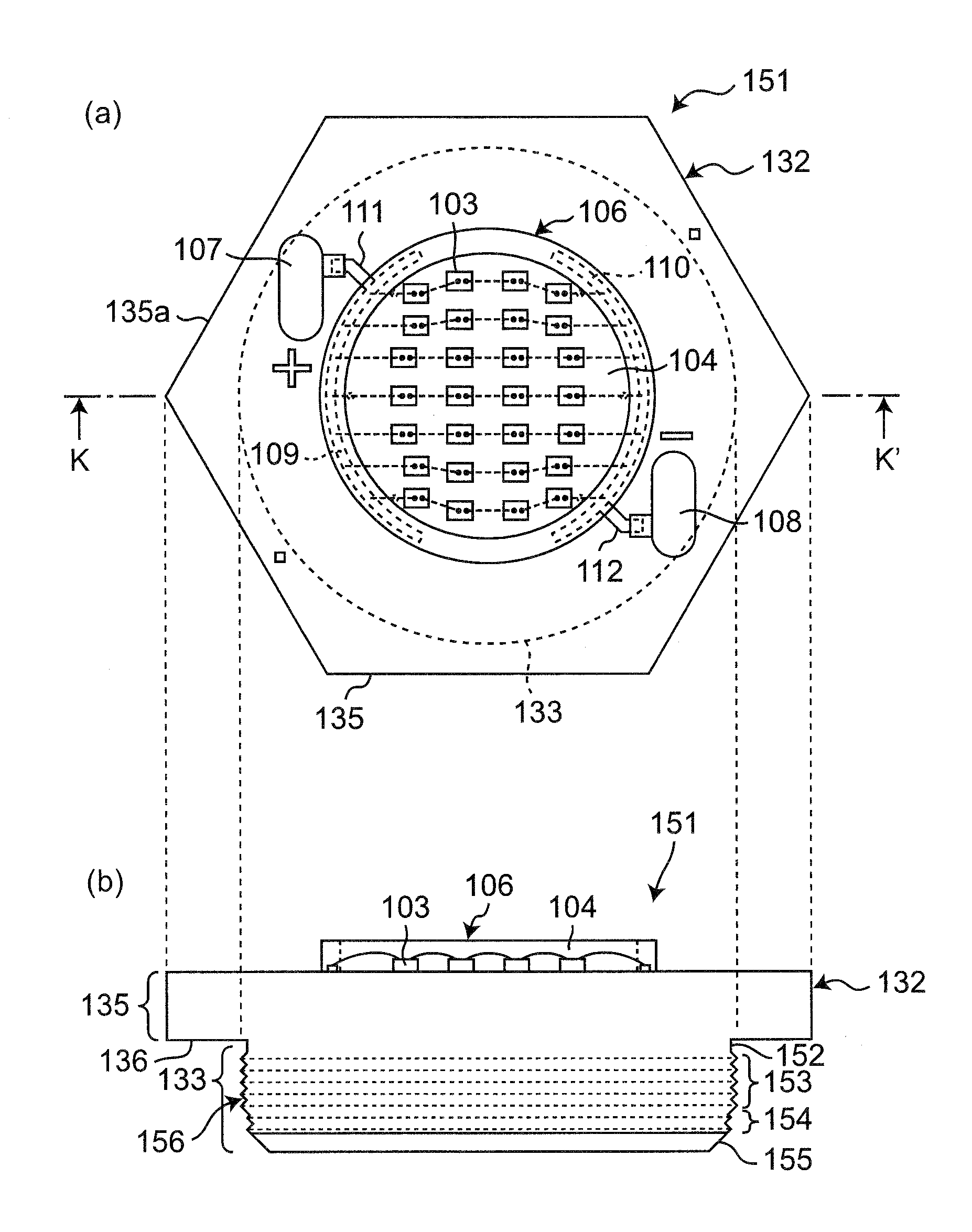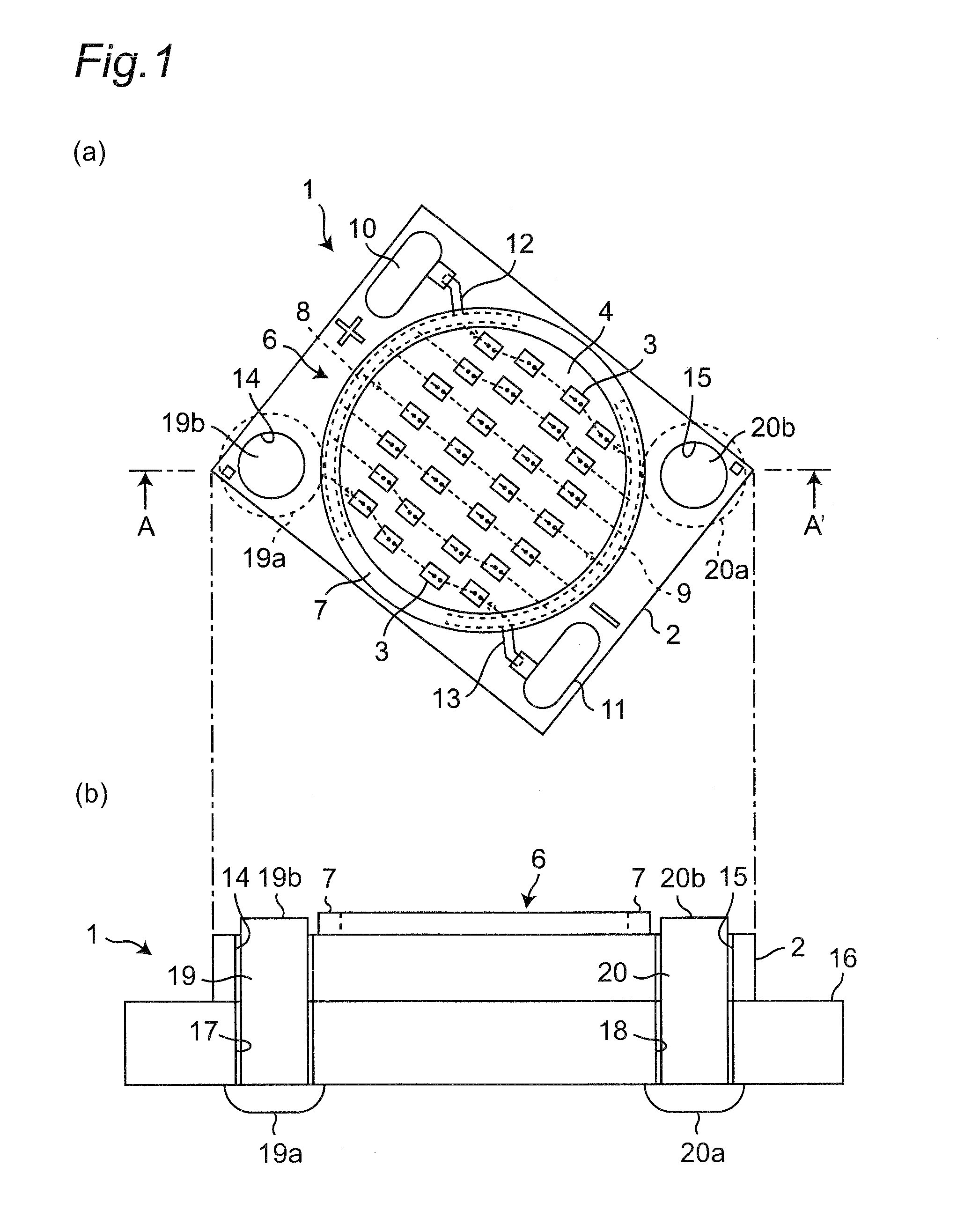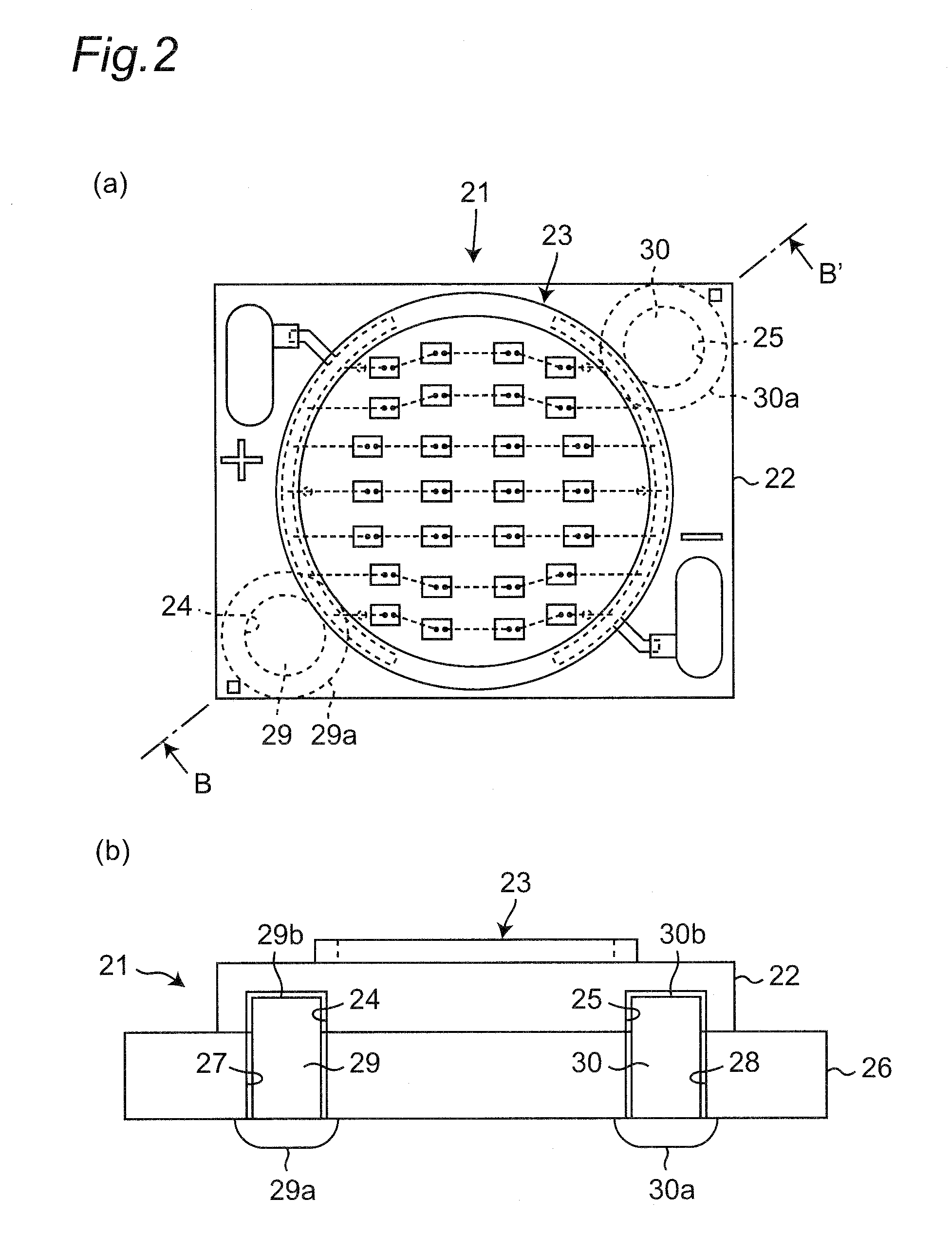Light-emitting apparatus and structure for attaching light-emitting apparatus to heat sink
a technology of light-emitting apparatus and heat sink, which is applied in the direction of lighting and heating apparatus, semiconductor devices for light sources, lighting support devices, etc., can solve the problems of decreased mounting area of led chips in printed circuit boards, increased size of illuminating parts of apparatus inclusive of heat sinks, and increased size of led chips in the heat sinks. , to achieve the effect of reducing the attachment area, increasing the light emission area and reducing the siz
- Summary
- Abstract
- Description
- Claims
- Application Information
AI Technical Summary
Benefits of technology
Problems solved by technology
Method used
Image
Examples
first embodiment
[0108]FIG. 1 is a view showing a structure for attaching a light-emitting apparatus to a heat sink according to this embodiment, wherein FIG. 1(a) is a top view and FIG. 1(b) is a sectional view taken along the line A-A′ of FIG. 1(a).
[0109]As shown in FIG. 1(a), a light-emitting apparatus 1 has a rectangular ceramic substrate 2 and a light-emitting part 6 formed on the rectangular ceramic substrate 2, the light-emitting part 6 having a plurality of LED chips 3 mounted on the substrate 2 and sealed with a transparent fluophor-containing resin 4.
[0110]Around the LED chips 3 on the ceramic substrate 2, circular arc-shaped anode-side wiring pattern 8 and cathode-side wiring pattern 9 are formed in opposition to each other so as to surround the plurality of LED chips 3. In this case, the anode-side wiring pattern 8 and the cathode-side wiring pattern 9 are placed so as to form part of an annular ring as viewed in a plan view.
[0111]An anode-electrode land portion 10 is formed at one of tw...
second embodiment
[0125]FIG. 2 is a view showing an attachment structure different of the light-emitting apparatus to the heat sink according to this embodiment, wherein FIG. 2(a) is a top view and FIG. 2(b) is a sectional view taken along the line B-B′ of FIG. 2(a).
[0126]As shown in FIG. 2(a), a light-emitting apparatus 21 is so constructed that a light-emitting part 23 identical in construction to the light-emitting part 6 of the first embodiment is formed on a rectangular ceramic substrate 22.
[0127]As shown in FIG. 2(a) and FIG. 2(b), the ceramic substrate 22 has a bottomed hole 24 having an opening on a heat sink 26 side thereof. The bottomed hole 24 is bored at one of two corner portions positioned on a diagonal line of the ceramic substrate 22 where no land portions for anode electrode and cathode electrode are formed. Also, another bottomed hole 25 having an opening on the heat sink 26 side is bored at the other corner portion of the ceramic substrate 22. Also, in the heat sink 26, through hol...
third embodiment
[0146]FIG. 4 is a view showing an attachment structure of a light-emitting apparatus to a heat sink according to this embodiment, in which FIG. 4(a) is a top view and FIG. 4(b) is a sectional view taken along the line D-D′ of FIG. 4(a).
[0147]As shown in FIG. 4(a), a light-emitting apparatus 51 has a rectangular ceramic substrate 52 and a light-emitting part 56 formed on the rectangular ceramic substrate 52, the light-emitting part 56 having a plurality of LED chips 53 mounted on the ceramic substrate 52 and sealed with a transparent fluophor-containing resin 54.
[0148]Around the LED chips 53 on the ceramic substrate 52, a circular arc-shaped anode-side wiring pattern 58 and a circular arc-shaped cathode-side wiring pattern 59 are formed in opposition to each other so as to surround the plurality of LED chips 53. In this case, the anode-side wiring pattern 58 and the cathode-side wiring pattern 59 are placed so as to form part of an annular ring as viewed in a plan view. Further, in c...
PUM
 Login to View More
Login to View More Abstract
Description
Claims
Application Information
 Login to View More
Login to View More - R&D
- Intellectual Property
- Life Sciences
- Materials
- Tech Scout
- Unparalleled Data Quality
- Higher Quality Content
- 60% Fewer Hallucinations
Browse by: Latest US Patents, China's latest patents, Technical Efficacy Thesaurus, Application Domain, Technology Topic, Popular Technical Reports.
© 2025 PatSnap. All rights reserved.Legal|Privacy policy|Modern Slavery Act Transparency Statement|Sitemap|About US| Contact US: help@patsnap.com



